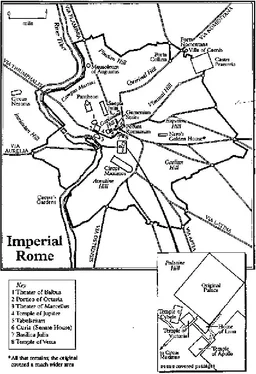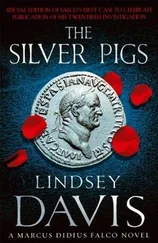Lindsey Davis - The course of Honor
Здесь есть возможность читать онлайн «Lindsey Davis - The course of Honor» весь текст электронной книги совершенно бесплатно (целиком полную версию без сокращений). В некоторых случаях можно слушать аудио, скачать через торрент в формате fb2 и присутствует краткое содержание. Жанр: История, на английском языке. Описание произведения, (предисловие) а так же отзывы посетителей доступны на портале библиотеки ЛибКат.
- Название:The course of Honor
- Автор:
- Жанр:
- Год:неизвестен
- ISBN:нет данных
- Рейтинг книги:5 / 5. Голосов: 1
-
Избранное:Добавить в избранное
- Отзывы:
-
Ваша оценка:
- 100
- 1
- 2
- 3
- 4
- 5
The course of Honor: краткое содержание, описание и аннотация
Предлагаем к чтению аннотацию, описание, краткое содержание или предисловие (зависит от того, что написал сам автор книги «The course of Honor»). Если вы не нашли необходимую информацию о книге — напишите в комментариях, мы постараемся отыскать её.
The course of Honor — читать онлайн бесплатно полную книгу (весь текст) целиком
Ниже представлен текст книги, разбитый по страницам. Система сохранения места последней прочитанной страницы, позволяет с удобством читать онлайн бесплатно книгу «The course of Honor», без необходимости каждый раз заново искать на чём Вы остановились. Поставьте закладку, и сможете в любой момент перейти на страницу, на которой закончили чтение.
Интервал:
Закладка:
"Ate it," he responded, after a short pause. "What did you expect?"
" In the street, lord?" Caenis demanded, as she had done once before.
And Vespasian answered, as he had done the first time, "In the street!"
A four-baton general with full triumphal honors and the dignity of nearly sixty years; it seemed impossible that he would ever change.
PART SIX
THE YEAR OF THE FOUR EMPERORS
When the Caesars were Nero, Galba, Otho, Vitellius, And their successor
THIRTY-SIX
Having wintered in Greece, Caenis spent the following spring by herself, traveling north through Dalmatia to Istria. When there seemed nothing to stay for, she returned to Rome.
During this time Vespasian reached Antioch, the chief city of the eastern Empire, where he made his first rendezvous with the new Governor of Syria, Licinius Mucianus (whom he described to Caenis as a bed-hopping wart posted here as an exile rather than a reward) and their ally, King Agrippa of Judaea (whom Vespasian crudely called a shifty bunch of ringlets on the make). He then marched his Fifth and Tenth Legions south to Ptolomais, which lay a short way north of Mount Carmel on the coast. There Titus joined him from Egypt with the Fifteenth. Campaigning began in Galilee, which had been heavily fortified by the rebels; after an easy assault on Gabara, Vespasian tackled Jotapata, a natural stronghold on a precipice where heavy numbers of enemy troops were dug in. He captured Jotapata in July.
He was a born soldier. More from what Titus told her than any indication Vespasian gave himself, Caenis knew that he possessed all the powers of analysis and organization to bring off whatever was required. His talents flourished in the army, where no one cared who a man's ancestors had been, provided he measured up to the current task. Set in charge of the brilliant Roman military machine, he was an ideal leader. Action fired him; he threw his energy and intelligence into the campaign, always accessible to the men, always aware of their mood. His down-to-earth character made him one of them; his competence made him a general they were proud of. It was already obvious how things in Palestine would go.
Caenis sailed to Italy. She traveled across country, pausing at Vespasian's Reate estate. It was on her return to his house in Rome that the notorious incident with Domitian occurred. He was eighteen now. Caenis sympathized with his grudge that his brother had been singled out for special advantage in Judaea; the natural close partnership between Vespasian and Titus had become impossible to conceal. Caenis and Domitian had never liked each other, but she greeted him with more than usual kindness, turning her cheek as usual for his kiss. Domitian curtly offered his hand instead.
Caenis shook hands without a word. She never presumed to demand from other people the compliment Vespasian had chosen to give. She never complained. Yet it was noticed. Domitian would be condemned by the historians on her behalf.
* * *
By the end of his first year Vespasian had subdued most of Galilee. It was at Gamala, while the Romans were pressing a hard siege, that his enthusiasm carried him so far forward that he found himself trapped with only a handful of men at the center of the citadel; they had to fight their way out backward, inching step by step down to safety behind a wall of locked shields. Of course, by the time Caenis heard this it was old news, she realized that. "Don't panic!" he wrote cheerfully. "Eat a decent breakfast and calm down !" Caenis ate breakfast and half her lunch, then panicked and was sick. By now she had found out too about the arrow he had caught in his foot at Jotapata; this did not reassure her. He captured Gamala in October.
Vespasian retired for the winter with two legions, later traveling with Titus inland to Caesarea Philippi for three weeks of state banquets and thanksgiving sacrifice. Caenis was by then missing him dreadfully, for the dark days and bitter weather seemed to emphasize the quietness of their house in Rome and the coldness of her bed. Letters became infrequent due to the closed sea crossing, though at least when they came there were sometimes more than one. Alone in Rome she received fewer social invitations, and lost interest in the theater without his being there too. She wished she had known he would winter at Caesarea, where the climate was pleasant at that time of year and King Agrippa—who had such close family ties to Antonia—was apparently being most hospitable. Despite the sensible discussion she had had with Vespasian in Greece, she would after all have gladly endured a summer on her own in Syria in return for spending time with him now. She wanted more than ever to be there.
It was only gradually that she realized Vespasian and Titus did not quite so badly need her. They were being entertained by King Agrippa in some style. Part of the entertainment comprised his radiant sister, Berenice.
Queen Berenice of Judaea was high-born, courageous, wealthy, and acknowledged throughout the Empire as the most beautiful woman of the age. She was forty, but at the height of her looks. Caenis must be nearly sixty, and had never been a beauty.
"Damn," she accused her mirror mildly.
She trusted him; of course.
* * *
There seemed no alteration in the tone of Vespasian's letters. They had always been more anecdotal than sentimental. (He omitted anecdotes about Queen Berenice.) At the end he always mentioned that he missed Caenis; the statement became as regular as his official military stamp.
He used their correspondence like a man marshaling his thoughts. He summarized for her the strong Roman position in Galilee, and his proposals for taking Judaea, Idumaea, and Peraea next spring before the great effort that would be needed for the siege of Jerusalem; the capture of Jerusalem must be the crown of his campaign. When the Judaeans were not fighting Rome they were fighting one another; Vespasian wondered why the most inhospitable tracts of territory were so endlessly disputed. Perhaps while they were struggling against sun and wind, locusts and famine, it made small difference for the inhabitants to struggle against each other too. Dwellers in richer pastures found peace more convenient. . . .
Suddenly once, as if it were by accident, he began a letter "Oh, Caenis, my dear love—" He had never done that before. In the rest of the letter he sounded wearier than usual, but that was no excuse. She knew then: nobody could ever be trusted.
"Damn!" exclaimed Caenis, not so mildly. She remembered Antonia saying that losing them to women never mattered; it was giving them up to politics that was final. Mark Antony's daughter should have known better, her freedwoman thought, envisioning another exceptional Roman general making a fool of himself with another ravishing foreign queen.
Caenis had intended to return a dignified answer, merely answering what he had asked her about events in Rome, in Gaul, in Spain. It was a complete mistake that she added at the end how keenly she was missing him, a plea that she in turn had always spared Vespasian. It was a mistake, but when she noticed she did not erase it. She felt he owed it to her to accept the truth for once, even though she understood—since she had always been a shrewd woman—that the moment was wrong and the declaration most likely to drive him away.
All his subsequent letters addressed her simply as Antonia Caenis, with the old-fashioned formality he normally used when he wrote. She noticed he was putting in more jokes. She could not decide whether that was good or not. She guessed it was guilt.
* * *
For anyone with an interest in political events whose attention was not dominated by the situation in Palestine, what happened that spring in Rome, in Gaul, in Spain, was fascinating. Nero's fourteen years had clearly reached their convulsive decline. After more than a century of Empire, and of executing their own kin, the Julio-Claudian family had thinned its own ranks to nothing. Nero's only child, a daughter, had died in infancy. There was no alternative heir. Rome hung on the brink of a climactic upheaval, into which this time the whole Empire would be drawn.
Читать дальшеИнтервал:
Закладка:
Похожие книги на «The course of Honor»
Представляем Вашему вниманию похожие книги на «The course of Honor» списком для выбора. Мы отобрали схожую по названию и смыслу литературу в надежде предоставить читателям больше вариантов отыскать новые, интересные, ещё непрочитанные произведения.
Обсуждение, отзывы о книге «The course of Honor» и просто собственные мнения читателей. Оставьте ваши комментарии, напишите, что Вы думаете о произведении, его смысле или главных героях. Укажите что конкретно понравилось, а что нет, и почему Вы так считаете.












